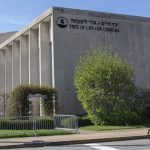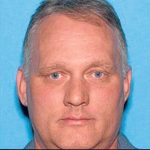Jury selection begins Monday in the capital case against the man accused in the 2018 mass shooting at the Tree of Life synagogue building in Squirrel Hill.
Robert Bowers, 50, of Baldwin, could face the death penalty if convicted in the federal case.
The process of choosing 12 jurors and six alternates likely will take at least a few weeks, with testimony to follow. It is expected that the trial will last until late July.
Bowers, who has been in custody since the day of the attack, faces 63 federal counts, including 11 counts each of obstruction of free exercise of religion resulting in death and hate crimes resulting in death.
At trial, the government is expected to provide evidence through body camera footage, 911 calls, radio transmissions, surveillance photos, 3D scans reconstructing the crime scene and eyewitnesses.
There will be DNA evidence and ballistics and emotional testimony stemming from the worst antisemitic attack in U.S. history.
The case will be heard in the federal courthouse on Grant Street in Downtown Pittsburgh, but there also will be an overflow courtroom to accommodate the anticipated large number of spectators and media.
The crime
At 9:54 a.m. on Saturday, Oct. 27, 2018, 911 dispatchers in Pittsburgh got the first call for an active shooter at a synagogue at the corner of Wilkins and Shady avenues.
Shabbat services were just getting underway at the building that housed Tree of Life-Or L’Simcha, Dor Hadash and New Light congregations.
Before the morning was over, 11 congregants were killed and two others were shot and wounded. Five responding police officers were also injured, including four by gunfire.
Those killed included: Bernice Simon, 84, and her husband, Sylvan Simon, 86; brothers David Rosenthal, 54, and Cecil Rosenthal, 59; Dan Stein, 71; Irving Younger, 69; Dr. Jerry Rabinowitz, 66; Joyce Fienberg, 75; Melvin Wax, 87; Richard Gottfried, 65; and Rose Mallinger, 97.
Survivors and police officers on the scene that morning described it as chaotic as Bowers, armed with three handguns and an AR-15, entered the building, targeting Jewish people.
The first 10-man SWAT team went through the front door at 10:25 a.m., methodically clearing each room and searching for victims.
By 10:53, officers had exchanged gunfire with Bowers, who was struck in the left elbow and upper leg.
He asked the officers to come in and get him, but they refused.
Ten minutes later, Bowers began to crawl out.
As Bowers was taken into custody, the suspect told the officers why he did it.
“These people are committing genocide on my people. I just want to kill Jews,” he said, according to court documents.
The investigation
Soon after officers were called to the synagogue, they had identified Bowers, a high school dropout who had worked as a trucker.
He was interested in online extremism and frequently posted on Gab.com, an alternative social media site known to include antisemitic and alt-right positions.
He frequently shared content and interacted with people on the site who were “virulently antisemitic” and considered to be influencers in the alt-right community, according to court documents.
The morning of the attack, using the screen name “onedingo,” Bowers posted, “[Hebrew Immigrant Aid Society] likes to bring invaders in that kill our people. I can’t sit by and watch my people get slaughtered.
“Screw your optics, I’m going in,” he wrote, according to court documents.
Within days of the attack, the U.S. Attorney’s office in Pittsburgh said it had started the process to have the case qualified for the death penalty.
By August 2019, the Department of Justice signed off: It would seek execution.
According to a letter released by the Rosenthal family on April 14, seven of the nine families whose loved ones were killed want Bowers to be sentenced to death.
“Anything other than death penalty qualification in this capital murder case would be a grave injustice as well as a disservice to the lives, legacies and memories of our deceased family members and to us, the immediate victim-family members that live this nightmare each and every day,” they wrote to U.S. Attorney General Merrick Garland.
Pretrial wrangling
Defense attorneys for Bowers have challenged every step of the case against their client — from the federal court’s methods for collecting citizens’ names for the potential jury pool to the constitutionality of the death penalty.
They have offered for their client to plead guilty in exchange for multiple life prison terms. They have questioned the Department of Justice’s methods for choosing when and how to pursue capital punishment.
There have been few substantive hearings, but the case has been heavily litigated on paper. There have been more than 1,100 filings on the court docket, with many of those under seal.
Bowers has appeared in court only twice: for arraignment and then during the jury questionnaire process last month.
He did not attend a two-day suppression hearing in October 2021 during which his attorneys attempted to convince now-retired Senior U.S. District Judge Donetta Ambrose that the statements Bowers made to police about his motivation in committing the crime should be withheld from the jury because he made them before he was given his Miranda warnings.
The judge denied the motion.
Change of venue debate
The defense filed a motion for change of venue, arguing that pretrial publicity warranted moving the case outside of the Western District of Pennsylvania’s Pittsburgh division, which encompasses 13 counties.
However, U.S. District Judge Robert Colville, who took the case over from Ambrose, denied the motion. He wrote in his opinion that the publicity in the case “falls far short of grossly damaging coverage” requiring a change of venue.
He noted, too, that the court’s master jury pool comes from a voter registration list of 1.9 million voters. Colville wrote that the suggestion that 12 impartial jurors could not be chosen from that large group is hard to believe.
Nathan Williams agreed. He was the lead prosecutor in the case against Dylann Roof, convicted and sentenced to death for killing nine Black people in the Emmanuel African Methodist Episcopal Church in Charleston, S.C., on June 17, 2015.
In some jurisdictions with a smaller population, Williams said, a judge might expand the geographic area from which the jury is selected. But in an area with nearly 2 million people in the pool, Williams said, that shouldn’t be necessary.
“You can absolutely find 18 people who can be fair and impartial,” he said.
Death penalty discussion
In September, the defense filed a motion asking that they be allowed to conduct a one-question survey of potential jurors to ensure that Catholics — and any other religious groups — are not being improperly excluded.
They argued that if Catholics were being disproportionately excluded because of their stance against capital punishment, it was more likely the jury hearing the case would vote for death.
Colville denied the request.
In recent weeks, defense attorneys have filed additional motions attempting again to get the court to throw out the option of the death penalty. In those filings, they have shared correspondence with the local U.S. Attorney’s office handling the case, as well as with officials from the Department of Justice.
The filings cite statistics from the Justice Department showing that, under the current administration, it has withdrawn its notice to seek the death penalty in 23 cases and has chosen not to seek capital punishment against 389 defendants potentially eligible for it.
They call the process “arbitrary,” further noting a moratorium on federal executions announced by Garland in July 2021.
To receive a sentence of death, the prosecution must prove the existence of at least one aggravating factor beyond a reasonable doubt. Jurors must weigh that against any mitigating factors offered by the defense — which must only be proved by the lower burden of a preponderance of the evidence.
If the aggravating factors outweigh the mitigation, the jurors can then deliberate on whether they want to impose a sentence of life or death.
A death verdict must be unanimous.
In January, Colville granted a defense motion asking that any sentencing portion of the case be held in two phases.
That means if Bowers is found guilty, the government must present evidence in the first part of the sentencing phase as to why he is eligible to be put to death.
In this case, the government alleged several aggravating factors, including: that Bowers targeted vulnerable victims; that the act involved multiple killings; that the killings were motivated by religious animus; and that he targeted people attending a synagogue.
Only after that phase is completed would the jurors hear victim impact testimony from the families of those killed as well as the surviving victims.
If the case reaches a sentencing phase, Bowers’ attorneys have filed notice of a mental infirmity defense. His attorneys have said he has been diagnosed with schizophrenia and epilepsy.
The government has sought permission from Colville to have their own experts conduct a mental health evaluation on Bowers.
The court has not yet ruled on that issue.
A long time coming
The case has been pending for nearly 4½ years — a long time even for capital litigation.
Two of those years were marked by delays based on the covid-19 pandemic. The defense said repeatedly in status updates that it was having trouble conducting a mitigation investigation into Bowers’ life because of problems with travel and health precautions.
“If you subtract out covid time, I don’t think your timeline would look all that unusual,” Williams said.
The Roof case made it to trial in 18 months, Williams said, which he characterized as fast. But unlike in the case against Bowers, Roof sought a speedy trial. He also did not pursue a mental health infirmity defense that often can delay a case.
Although the trial is expected to last weeks, the jurors will not be sequestered, which is typical in high-profile cases, Williams said. The jury also was not sequestered in the Charleston church shooting case.
“You have to look at the toll that takes on jurors and whether it truly helps them be fair and thorough and impartial,” he said, noting that jurors are away from their loved ones for weeks or even months.
Williams said the public should expect the trial to play out in a methodical way.
“It’s going to be emotional and a bit of a marathon,” he said.











